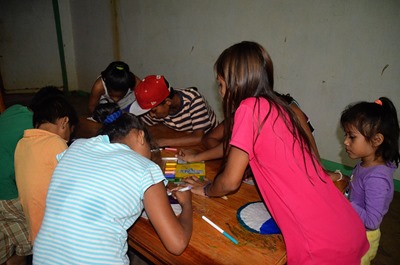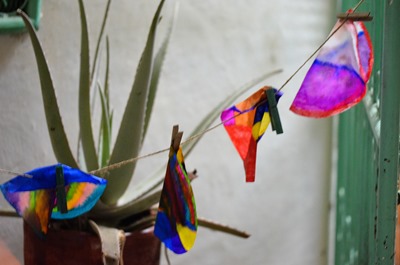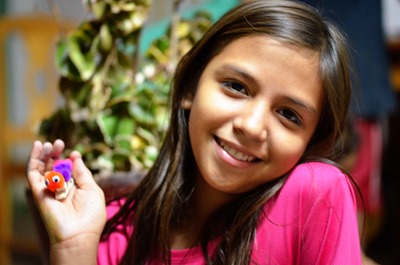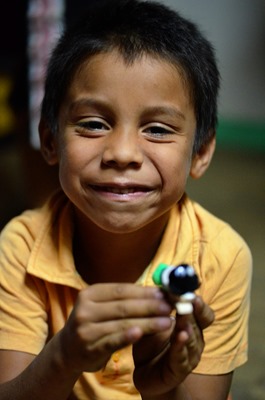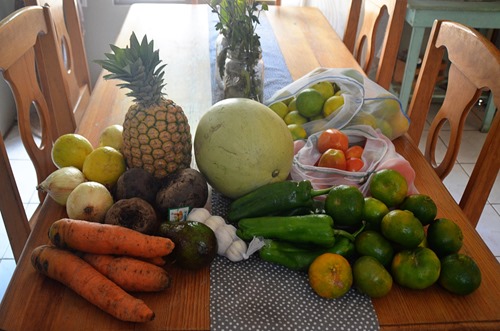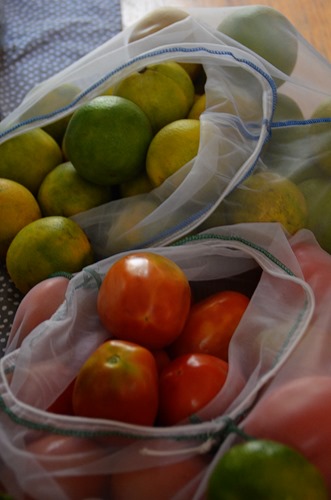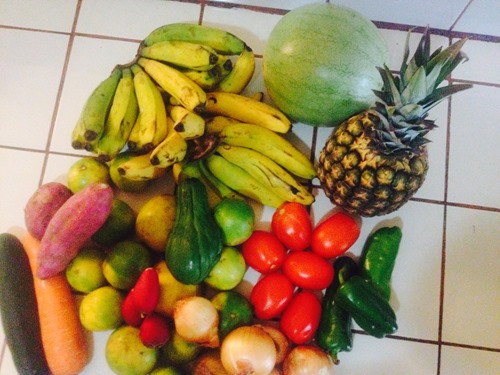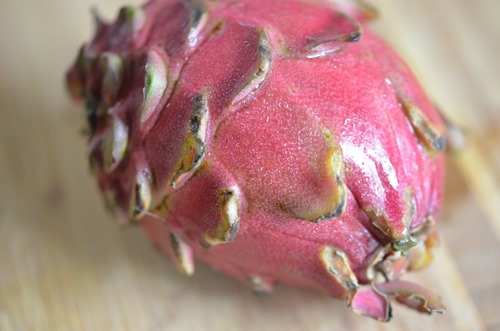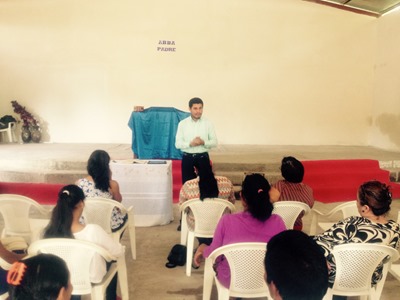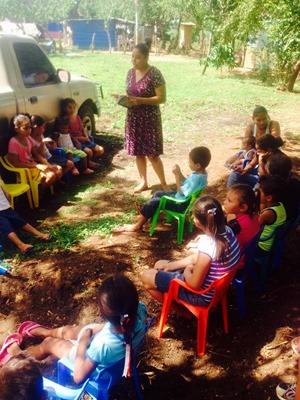All of our days involve time with our neighbors, both the kids or adults. When living in a barrio, sharing walls along with smells and sounds, a communal life is the norm. Whether we are purchasing an egg from the local pulperia, chatting with our neighbors about the latest news in the neighborhood or being greeted by a hug from one of the kids upon walking up the road, our neighbors play a big role in our life. Just last week, I (Cassie) was home with Estela, in bed around 6am. Suddenly Brisa entered through the window with a dead bird in her mouth. She dropped it on the floor next to me, proud of her work. Me, being terrible with these kinds of things, went right to my neighbors. They came over and cleaned it up for me, while laughing and teasing me for my timidness. It wasn’t the greatest start to the morning, thanks to Brisa, but it was great for community building.
The kids in our neighborhood are always interested in spending time with us. They often do not have a lot of structured activity outside of school, which only lasts four hours each day. So we try to provide some type of activity for them twice a week. To be honest it has been much less in the last month with the arrival of Estela! Our time together can involve a craft, reading books, playing a more active game or a movie night with popcorn. This week we have plans to play their favorite game, BINGO.
We recently did some crafts that my cousin Kelly generously sent down with us. We made caterpillars and butterflies and the kids loved it! Enjoy the photos!

